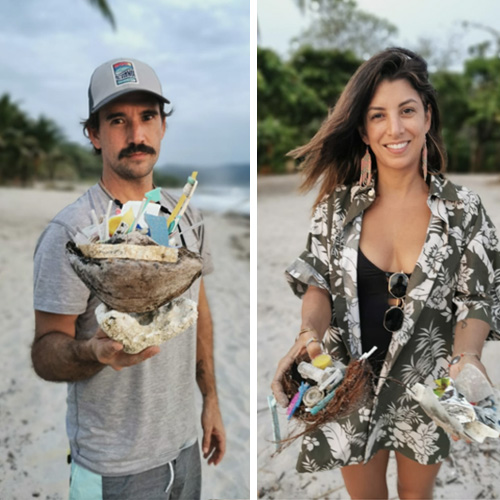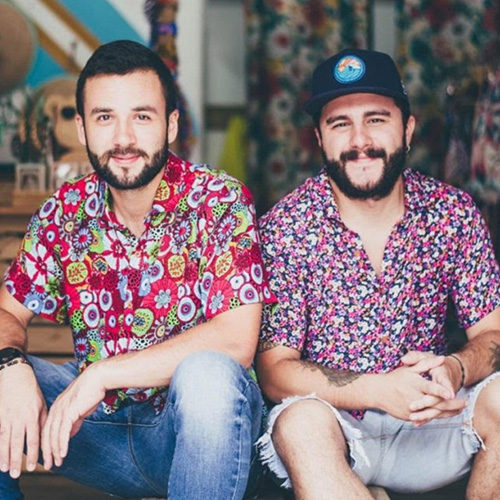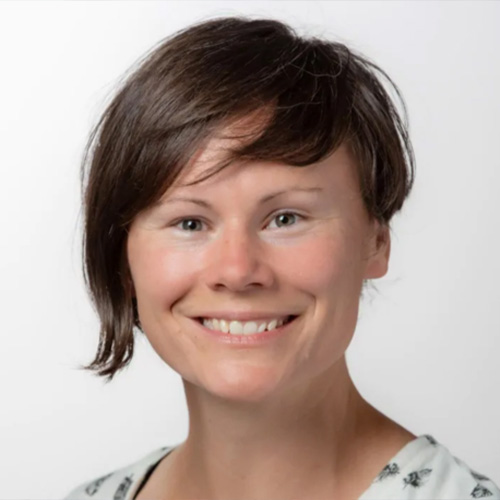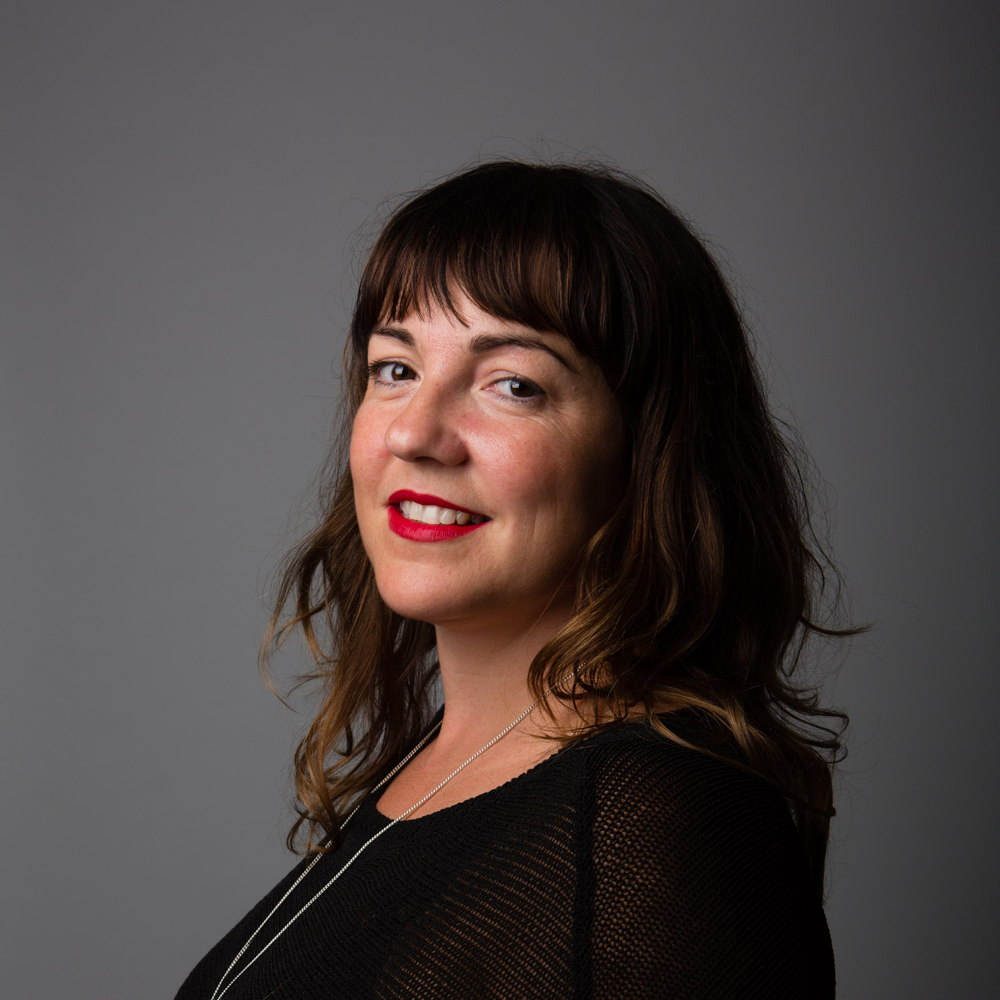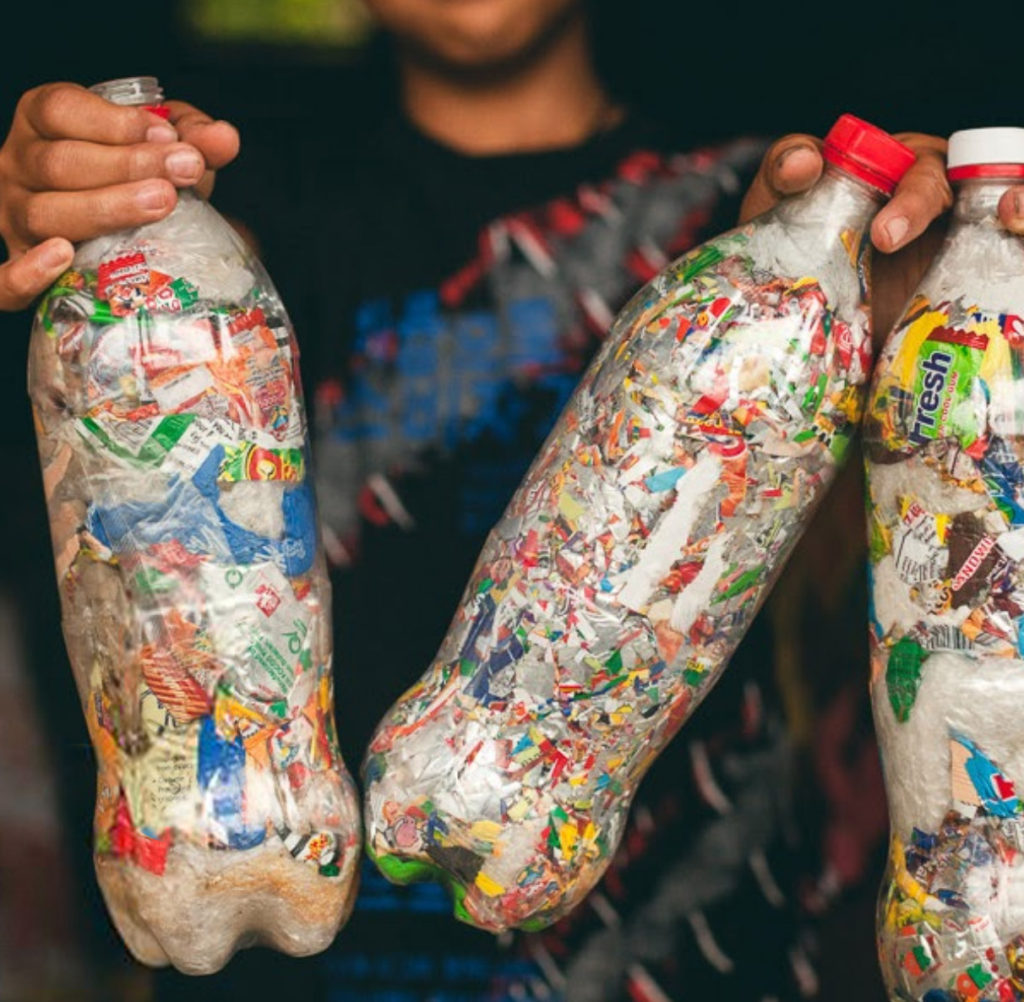
AdaPETation talks to Costa Rican film-maker Mauricio Cortes and environmental activist and former diplomat to the United Nations, Carolina Sevilla about 5 Minute Beach Clean Ups and educating the next generation on their plastic consumption.
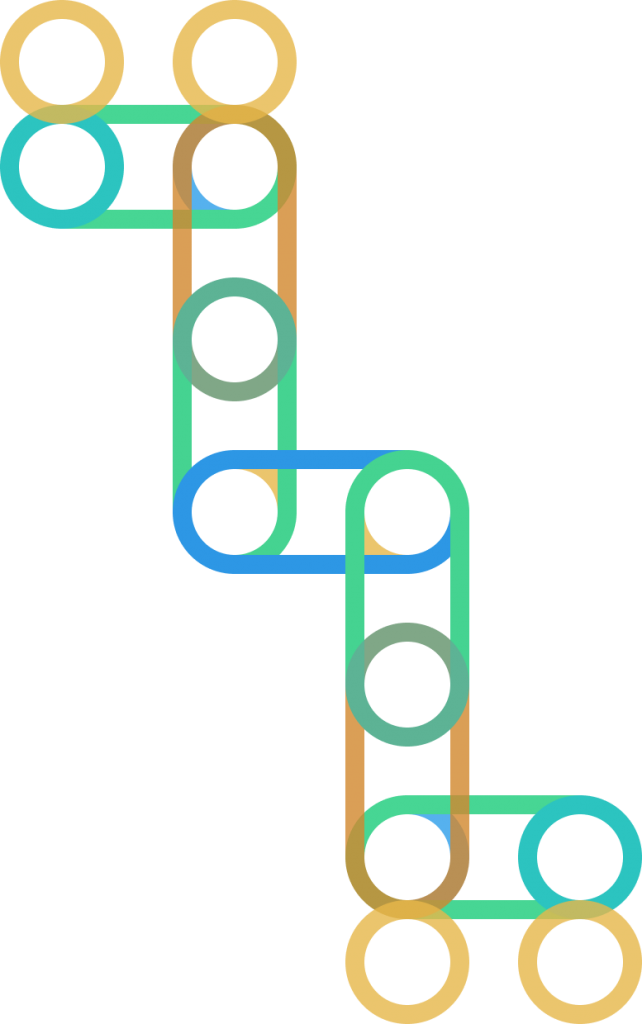
Mauricio Cortes and Carolina Sevilla are on a mission to not only clean up the beaches of Costa Rica (and the rest of the world for that matter) but also to forge a path for the next generation to engage with the huge challenge facing them to close the loop on single-use plastics.
Taking a trick from Elon Musk’s productivity playbook and Instagram founder Kevin Systrom’s simple method to end procrastination, this dynamic duo work in 5-minute blocks, motivating people around the globe to commit to doing something to stem the tide of more than 8 million tonnes of plastic making it into the oceans every year.
The 5 Minute Beach Cleanup initiative started as a hashtag on Instagram in 2017 and soon spiralled into a global movement fueled by the power of social media and uber-influencers. With more than 25,000 beach cleanups under its belt, the movement’s evolved in the last three years into an educational initiative that seeks to inspire the next generation.
“Each year, we are consuming more and more plastics so we do need to clean up the beaches but before cleaning up the beaches we need to educate the people about consumption because if not it will be a never ending task,” says Cortes. “Since we created the foundation we have been focused on the root of the problem: how we consume and how we dispose of the product.”
Film-maker Cortes teamed up with environmental activist and former diplomat to the United Nations, Sevilla to found the 5 Minute Foundation in 2018.
Since then, the dynamic double act have grown their beach cleanup community to 65,000 followers on Instagram and mobilized thousands more to spend at least 5-minutes cleaning up beaches in more than 70 countries.
Carolina helped BIONIC YARN, one of the do-good fashion brands recycling PET into fabrics sold on to a raft of fashion brands including G-Star Raw, H&M, Moncler and Chanel, set up its operations in Costa Rica.
The duo also have plans to roll out their education program. First by working closely with local hotels to incorporate beach cleanups into guests activities and then to extend the project to neighbouring countries.
“We’ve been working on various projects mainly through education,” says Cortes. “We started educating kids because kids are the best way to be able to change the generation but also to educate the older generation. If I come to you and tell you something you probably won’t listen and will continue doing things as you always have done. But when your kid comes and tells you, ‘Hey dad, you cannot consume that because it’s my future we are talking about,’ you are more likely to listen.”
Their education initiative is built on two campaigns enlisting Ocean Heroes, children from 4 to 11 that want to transform their homes and neighborhoods and Friends of the Ocean, visitors to Costa Rica that are interested in undertaking a beach cleanup and taking the 5 Minute Beach Clean Up message home with them as ambassadors for the movement.
They’ve received support from Costa Rica Marriott Hotels, Aguas Claras Hotel and The Nantipa Hotel for the project and hope to sign up 100 hotels to recover up to 24 tonnes of plastics a year through regenerative tourism practices.
All of this raises the question of what to do with all the rubbish they collect? The 5 Minute Foundation is now working on its own proposal to convert one man’s trash into someone else’s treasure with studies to create a high-value product that will capture and reuse the plastics they rescue.
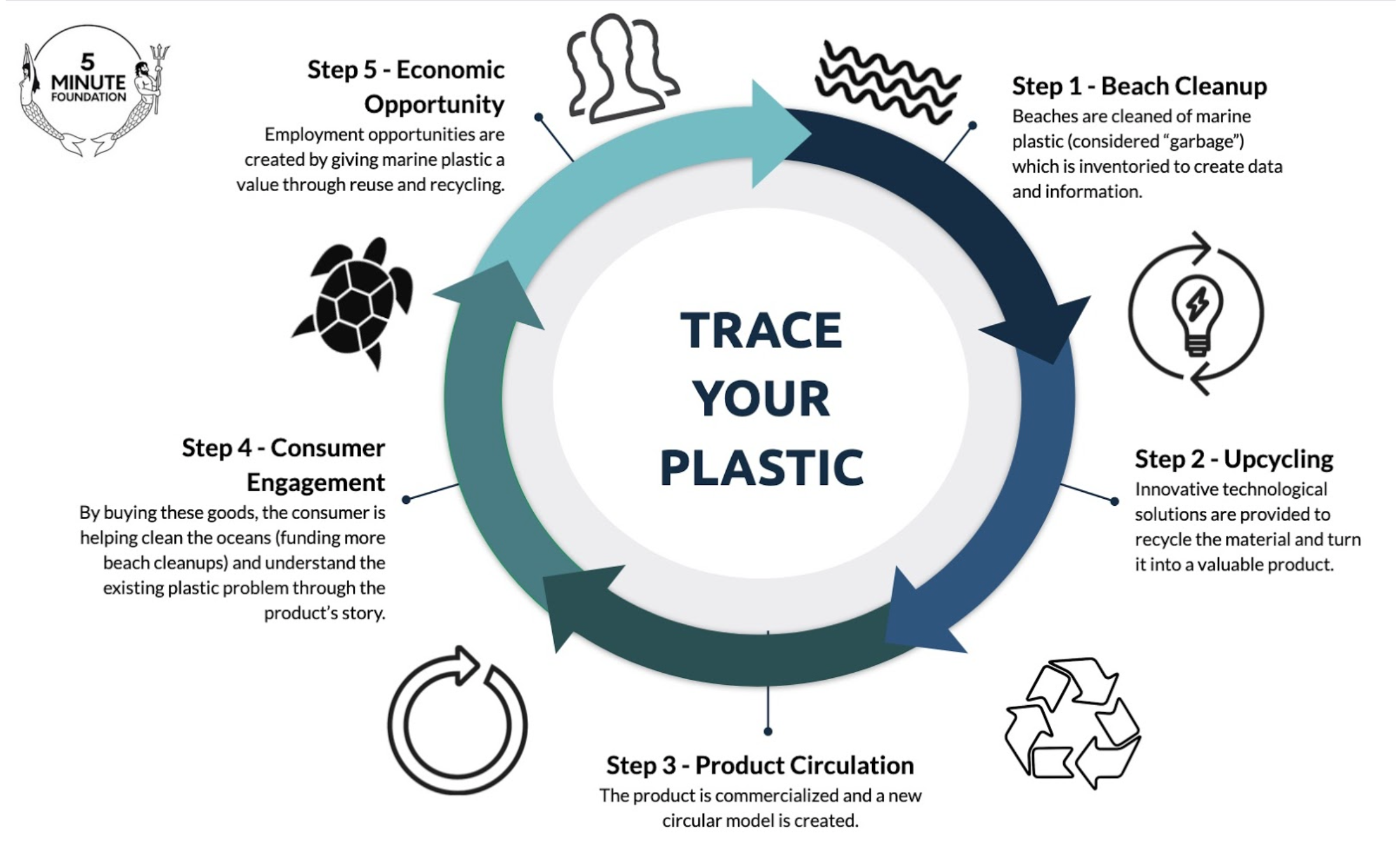
5MBCU is now working with researchers at the Tecnologico de Costa Rica in Cartago to find a way of combining all of the plastics into one product.
“The problem is studying all the marine debris is very mixed up its very contaminated and it’s difficult to recycle so we have to look at the most effective way to up-cycle this material and we as a foundation we’re trying to make a product that is made 100% from marine debris that tells a rich story and work a really good design so we can give a very high value to the product. This way we can create a circular economy model buying marine debris in the future to coastal towns that are in need,” says Cortes.
Prototypes are currently on the conveyor belt prompting the pair to dream of fresh income streams to finance their expansion globally.
“It’s not going to be for non-profit; this is also going to be a startup because it needs to be a circular economy model combined with a business,” says Sevilla. “We need to find capital investors that are working on the SDGs. Companies that are working on the sustainable development goals – to achieve them by 2030. We need to find those. There’s a lot of money needed but this is a great solution for the world,”
Share it
Useful Links
THE HISTORY OF PLASTIC
Throughout the history of plastic, PET has been crucial in keeping food fresh with lightweight and durable packaging solutions that have helped reduce food waste for almost a century. Learn all about the invention of plastic and the important role it has played feeding people and saving the lives of humans and elephants in the adaPETation® timeline of the history of plastic.
